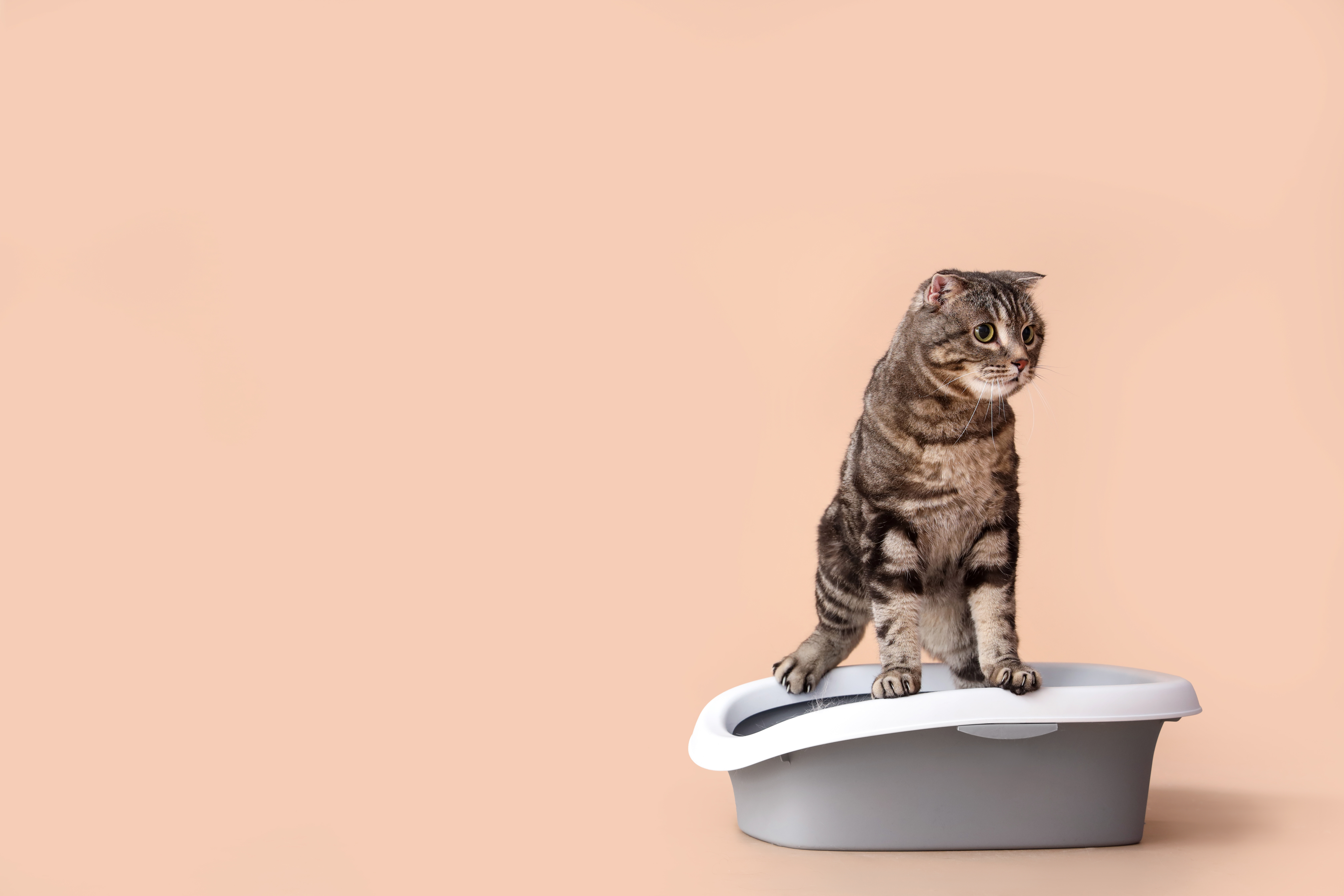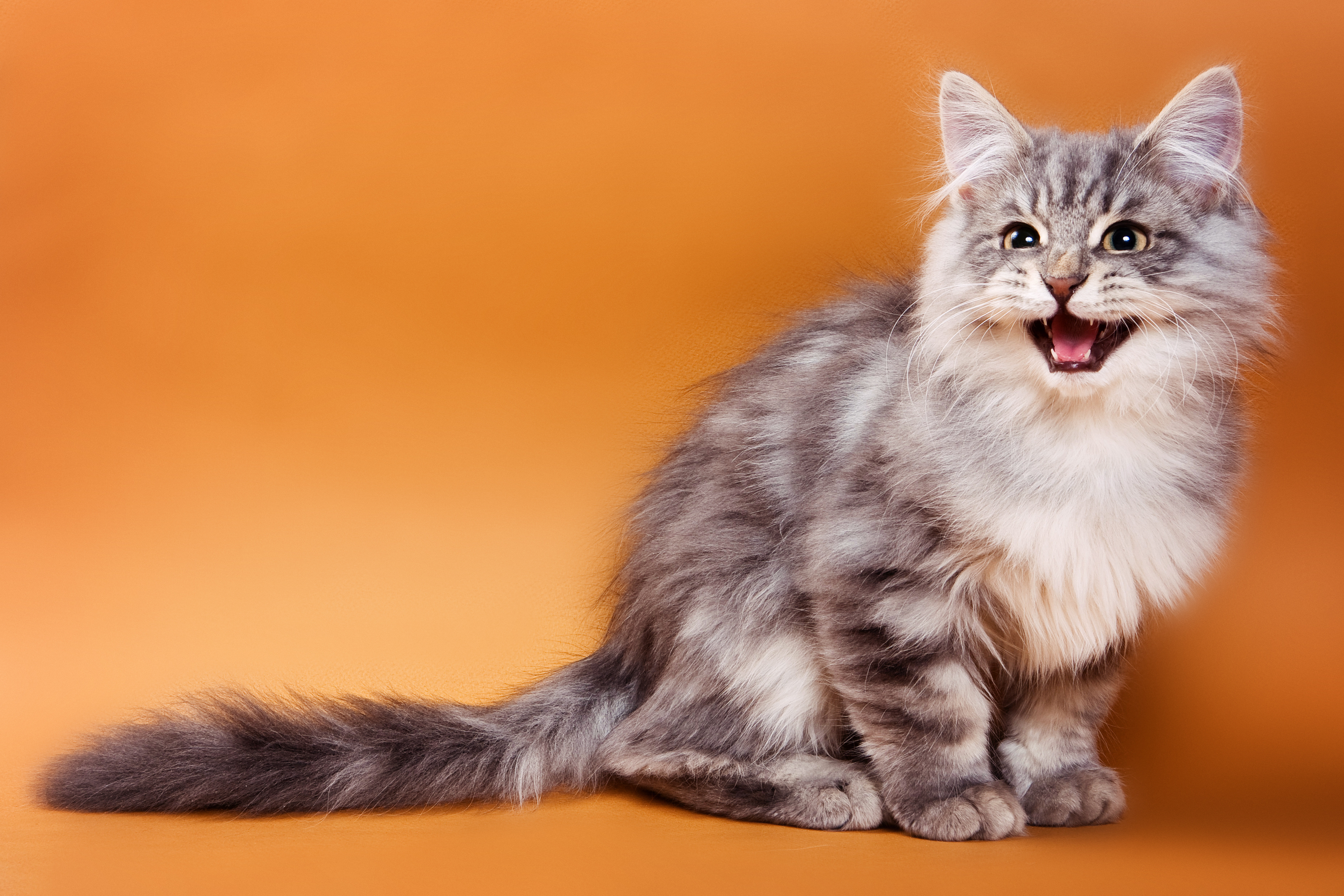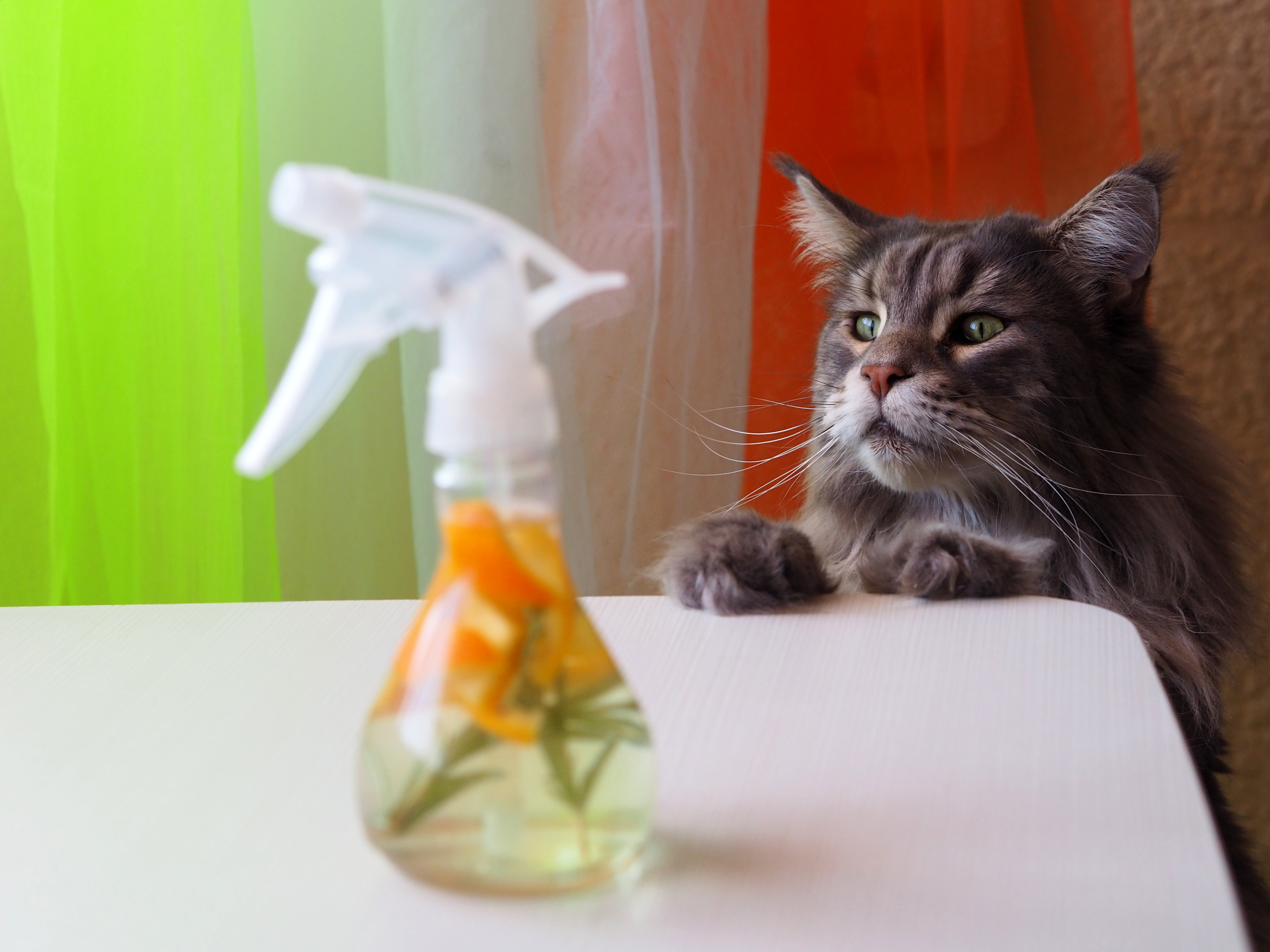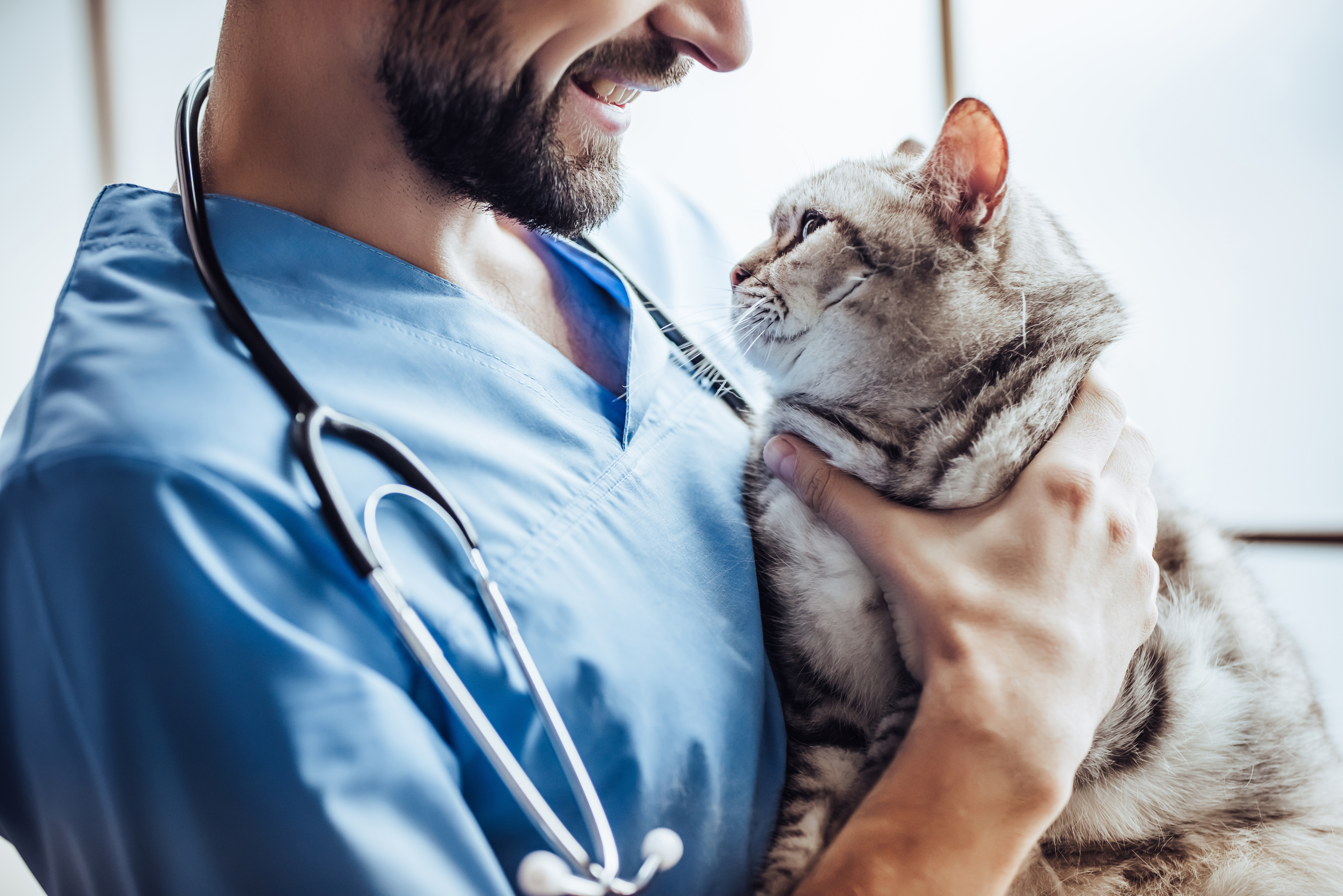
Discover the allure of British Shorthair cats, with their enticing big, round eyes, chubby cheeks, and plush coats. You'll find yourself showering these adorable felines with treats, toys, and endless snuggles once you've set your sights on them.
British Shorthairs are not only adorable, but their friendly and laid-back personalities make them even more so. These easy going cats are well-known for their adaptability and compatibility with children and other pets, making them excellent additions to any family. They're always up for sharing moments of joy with their human companions, whether they're lounging around, taking peaceful naps, or engaging in playtime.
British Shorthairs, as a hardy breed, have impressive lifespans that can reach 20 years or more. They are, however, susceptible to certain health conditions that may arise during their lifetimes, just like all cats.
Are you curious about these common health concerns? Continue reading to learn about the nine most common problems that can affect British Shorthair cat breeds. We'll also give you helpful hints on how to keep your British Shorthair healthy so you can spend many happy years with your best friend.
Common Health Issues for British Shorthair Cats

If you own or are thinking about getting a British Shorthair cat, you should be aware of the breed's health issues. Most British shorthairs are tough and healthy cats with long lives; however, they, like any other breed of cat, have their share of health issues that can make caring for them a little more difficult than caring for other breeds. Let's take a look at some of the most common health issues in British shorthair cats and how to spot them early.
Hypertrophic Cardiomyopathy Hypertrophic cardiomyopathy (HCM) is a heart condition that can affect British Shorthairs. HCM causes thickening of the heart walls, resulting in decreased organ efficiency.
A cat with HCM may have an elevated heart rate, which increases oxygen consumption and may cause heart cell damage. As a result, the functionality of the heart may be compromised, potentially leading to the formation of blood clots or congestive heart failure.
It is critical to understand that not all cats with hypertrophic cardiomyopathy show obvious symptoms of illness. While some may appear to be healthy, others may exhibit symptoms of congestive heart failure due to fluid buildup in and around the lungs.
Arterial Thromboembolism Feline Aortic Thromboembolism (FATE) is a potentially fatal complication of heart disease in cats. When blood clots form in the arteries, they become lodged just beyond the aorta, the major blood vessel responsible for supplying blood from the heart to the body. This obstruction prevents normal blood flow to the hind legs, potentially resulting in paralysis, coldness, or pain in one or both hind limbs.
FATE is a life-threatening disease that requires immediate and ongoing medical attention. However, there is hope for affected cats because with proper treatment, many survivors regain full limb function. If your cat has heart disease, our team may prescribe medications to reduce the risk of blood clots.
Recognizing the importance of FATE, it is important not to put off seeking help. Do not hesitate if your beloved cat suddenly has difficulty walking or dragging one or both back legs while expressing distress!
Polycystic Kidney Disease (PKD) Polycystic Kidney Disease (PKD), which was previously associated with Persian cat breeds, has also been observed in British Shorthairs. This genetic condition causes the kidneys to gradually fail due to the development of multiple cysts within them.
PKD can manifest itself early in a cat's life, with affected kittens sometimes born with tiny cysts in their kidneys (and occasionally their livers). These cysts grow over time, eventually leading to kidney failure.
PKD progresses slowly, and symptoms usually appear when a cat is around 7 years old. While there is no cure for PKD, symptoms can be managed and the progression of organ failure can be slowed.
Regular annual blood and urine testing, specialized diets, and periodic ultrasounds to monitor the cysts' development are all part of the supportive intervention. Because PKD is a genetic disease, responsible breeders prioritize screening their breeding cats for the PKD gene to prevent the disease from being passed down.
Feline Infectious Peritonitis (FIP) Feline Infectious Peritonitis (FIP) is a deadly coronavirus-caused disease in cats. While all cats carry this virus dormantly, a specific combination of mutations can activate it in a susceptible cat's immune system, resulting in FIP. Notably, British Shorthairs appear to be more susceptible to FIP than other breeds.
FIP causes blood vessel damage (vasculitis) and fluid accumulation in the abdomen or chest. While blood testing can detect coronaviruses in cats, it may not be able to distinguish between non-harmful coronaviruses and FIP disease. As a result, screening for FIP before breeding or selling cats can be difficult and unreliable.
When thinking about adopting a British Shorthair or any purebred cat from a breeder, be cautious and ask about any history of FIP infection in the kitten's or cat's family or cattery. Unfortunately, there is no effective treatment for FIP at the moment, making it a devastating and unavoidably fatal disease.
Cataracts Cataracts are a common vision problem in senior British Shorthair cats and other feline breeds. This condition causes cloudy opacities in the lens of the eye, which can lead to blindness if not treated promptly.
Cataracts develop slowly over time, making them less noticeable to owners until their cat reaches old age. As a responsible pet owner, you must be on the lookout for changes in your cat's vision, such as cloudy pupils and increased clumsiness or bumping into objects.
The good news is that cataracts can be surgically removed, giving affected cats hope of regaining their vision after the procedure.
Are British Shorthair Cats The Right Breed for You?

If you're thinking about getting a cat friend, British Shorthair cats might have piqued your interest with their adorable appearance and charming personality. However, before making such a big decision, you should consider whether this breed is a good fit for your lifestyle and preferences.
Temperament and Personality British Shorthair cats are known for being laid-back and affectionate. They are generally friendly and calm, and get along well with children and other pets, making them an excellent choice for families or households with multiple animals.
Grooming Needs One of the benefits of British Shorthair cats is that they require little grooming. Their short, dense coats require less brushing than long-haired breeds, which can be beneficial to busy pet owners.
Activity Level These cats strike the perfect balance of playfulness and relaxation. While they enjoy interactive play, they are also content to lounge around, making them ideal for individuals or families who lead moderately active lives.
Health Considerations British Shorthair cats, like any other breed, may have unique health concerns. This breed is more prone to hypertrophic cardiomyopathy (HCM) and polycystic kidney disease (PKD). Being prepared for routine veterinary visits and potential health issues is essential for responsible pet ownership.
Longevity British Shorthairs have a reputation for living for 15 years or more with proper care and attention. They can become cherished companions for many years if you are committed to providing lifelong care.
Size and Appearance British Shorthairs have a distinct and adorable appearance, with medium to large frames and round faces that appeal to many cat lovers.
Adopting a British Shorthair cat should be based on a careful assessment of their temperament, grooming requirements, activity level, potential health concerns, and your ability to provide a loving and supportive environment. If these characteristics match your lifestyle and preferences, a British Shorthair cat could be the ideal feline companion for you. Remember to do your research, interact with the breed, and weigh all factors before making your final decision to ensure a fulfilling and long-lasting relationship with your new feline friend.
Does Pet Insurance Cover Common Health Issues for British Shorthair Cats?
Pet insurance can be a wise investment in reducing the financial burden of unexpected veterinary costs for your British Shorthair cat. The coverage provided by pet insurance plans varies depending on the provider and the policy you select. When it comes to common health issues for British Shorthair cats, here's what pet insurance typically covers and what it might not:
What Pet Insurance Covers:
Accidents and Injuries: Pet insurance often covers the costs associated with accidents, such as fractures, lacerations, and other injuries resulting from accidents.
Illnesses: Many pet insurance plans cover the expenses related to various illnesses, including infections, digestive issues, and respiratory problems.
Hereditary and Congenital Conditions: Some policies cover hereditary and congenital conditions like hypertrophic cardiomyopathy (HCM) and polycystic kidney disease (PKD), which are more common in British Shorthair cats.
Chronic Conditions: Pet insurance may provide coverage for ongoing or chronic conditions that require long-term management, such as diabetes or kidney disease.
Diagnostic Tests: Costs for diagnostic procedures like blood tests, x-rays, and ultrasounds may be covered under certain pet insurance plans.
Prescription Medications: Pet insurance may help with the cost of prescription medications prescribed for covered conditions.
What Pet Insurance May Not Cover:
Pre-existing Conditions: Pet insurance typically excludes coverage for any pre-existing conditions your cat had before obtaining the insurance policy.
Routine and Preventive Care: Most pet insurance plans do not cover routine procedures like vaccinations, regular check-ups, or dental cleanings.
Elective Procedures: Cosmetic or elective procedures, such as tail docking or ear cropping, are generally not covered.
Breeding-related Costs: Pet insurance usually does not cover costs associated with breeding or pregnancy-related expenses.
Behavioral Issues: Behavioral problems, training, or consultations with animal behaviorists are often not covered.
Waiting Periods: Many pet insurance policies have waiting periods before certain conditions are covered, so it's essential to be aware of these limitations.
Bottom Line
When you bring a British Shorthair cat into your home, it's difficult to imagine life without their cheeky and affectionate presence. These cats are always a joy to be around, whether they are relaxing on your couch or lounging in the sun.
The lovely British Shorthair cat breed is generally healthy. This breed, like all other cats, is prone to a few health issues. You can help your British Shorthair live a long and comfortable life by learning as much as you can about their common health problems and how to prevent them.
British Shorthair Cats Health Frequently Asked Questions
What is the average life expectancy of a British Shorthair cat?
A British Shorthair cat's life expectancy typically ranges from 12 to 20 years. A British Shorthair can live a long and healthy life if properly cared for, and some have been known to live even longer.
Are British Shorthair cats prone to obesity?
Yes, due to their easy going nature and love of food, British Shorthairs have a tendency to gain weight. It is critical to keep track of their diet, provide regular exercise, and prevent obesity-related health issues.
Do British Shorthairs have respiratory
Some British Shorthairs may have brachycephalic characteristics (short nose and flat face), which can cause respiratory problems. Proper ventilation and stress reduction can help to alleviate these problems.
Are British Shorthair cats good with children and other pets?
Yes, British Shorthair cats are known for being friendly and adaptable, making them ideal companions for families with children and other pets. They have a calm and easygoing temperament, which makes them patient and tolerant of children. Their gentle and affectionate demeanor can make them excellent playmates for children.
Edited by:
Bryan Huynh
•
Product Tester & Writer
























